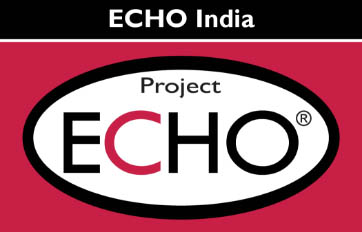World TB Day, observed on March 24, serves as a vital reminder of the ongoing battle against tuberculosis (TB). The 2025 theme, 'Yes! We Can End TB: Commit, Invest, Deliver,' emphasizes the importance of sustained commitment, investment, and united action. This year’s observance highlights the essential role of collaboration, education, and grassroots engagement in advancing the fight to end TB. At ECHO India, we are dedicated to empowering healthcare workers across the nation with the knowledge and skills necessary to combat TB. By fostering a culture of continuous learning and mentorship, we are contributing to a stronger, more resilient healthcare workforce that is at the forefront of TB care.
ECHO India’s Focus on Capacity Building
One of the core pillars of ECHO India’s TB initiative is capacity building. Our ECHO model, a unique, virtual, peer-to-peer learning model, enables healthcare professionals to connect with experts, learn from each other, and stay updated on the latest developments in TB care. Through this model, we ensure that even the most remote healthcare workers are equipped to diagnose and treat TB effectively.
In line with the National Tuberculosis Elimination Program (NTEP), ECHO India partners with State TB Cells (STCs), State TB Training and Demonstration Centres (STDCs), Centres of Excellence DR TB (CoE), Nodal DR TB Centres (NDRTBC) District TB Centres, and prestigious National TB institutions like NITRD, NIRT across the country. Over the years, our TB division has supported the capacity-building of over 7,32,000 healthcare professionals across 110+ hubs. ECHO India’s focus is on improving skills related to early diagnosis, appropriate treatment protocols, and patient management, with an emphasis on addressing challenges like drug-resistant tuberculosis (DR-TB).
Advancements in TB Screening, Diagnosis, and Treatment
Early detection is key to TB elimination. To enhance diagnostic accuracy, healthcare workers trained under the ECHO model are educated on advanced screening, diagnostic tools for LTBI, DST, DRTB and XDRTB which play a pivotal role in rapid TB detection.
Given the increasing burden of drug-resistant TB (DR-TB), ECHO India also focuses on training of Medical Officers on various treatment protocols including newly introduced BPaLM therapy aligned with WHO-recommended guidelines. Addressing DR-TB and complex TB patients requires a multi-pronged approach involving proper medication administration, patient adherence, and laboratory-based monitoring, all of which are reinforced in our routine State run Difficult To Treat TB Clinics (DT3C).
Success Stories and Impact
The success of our initiatives is reflected in the improvements in patient outcomes and early detection rates. For instance, the ECHO-Collaborative Actions for TB Control through Community Health Officers (CATCH) Project, implemented in the Kupwara and Baramulla districts of Jammu and Kashmir, has demonstrated measurable impact on knowledge enhancement and TB control efforts.
The knowledge changes before and after the ECHO sessions were found to be statistically significant, highlighting the effectiveness of the training. CHOs (Community Health Officers) from both districts expressed greater confidence in dispelling myths, reducing stigma, and improving sputum sample collection processes. Qualitative interviews with hub members further revealed improvements in skill-building, CHOs’ attitudes, laboratory sample collection, community engagement, and active case finding, alongside the development of key evaluation metrics to ensure the efficiency of TB-related activities.
A CHO who participated in the program shared how the sessions transformed their approach to sample collection:
"Gathering the samples in an open area was one of our frequent errors. When I attended the ECHO session, I was told how to collect quality sample from a presumptive TB patient properly. Then I realized that I had to keep it in a separate corner or take it in an open space. I used to make this mistake myself—I used to just tell them to give it to me. I didn't know that if the patient had a bacterial load, it would infect all of us."
These successes are a testament to the effectiveness of a model that prioritizes practical learning and local capacity building. By empowering healthcare workers and ensuring they have access to continuous education, we are making significant strides in TB prevention and treatment paving way towards elimination.
Challenges and Moving Forward
Despite our achievements, several challenges remain. The rise of drug-resistant TB, the stigma associated with the disease, and limited healthcare infrastructure in certain regions continue to hamper progress. Stigma reduction programs, including community outreach, are being reinforced through our ongoing collaboration with the government, and other organizations, we are actively addressing these issues.
Moving ahead, ECHO India plans to expand its training modules to address emerging challenges in TB care, including the integration of digital health solutions and the development of community-driven initiatives aimed at further reducing TB prevalence in underserved regions by enhancing patient support services.
Conclusion
World TB Day is an opportunity for all of us to reflect on our progress and renew our commitment to ending TB. At ECHO India, we remain steadfast in our efforts to equip healthcare professionals with the tools they need to fight this disease. With continued education, collaboration, and innovation, we can work towards a TB-free India!
